I direct PersAI Lab at UAlbnay. My primary research interest is devising data mining and machine learning solutions for challenges in human-centered applications, such as online education and recommender systems, with a personalization perspective. Due to the complicated nature of human behavior, data generated by such applications is complex. This data can be collected from multiple resources, have various formats, and be represented in intricate structures. It can include missing, uncertain, and noisy values with underlying patterns that evolve over time. I approach solving these data-related challenges by integrating multiple viewpoints brought by the heterogeneity of the data, generalizing the observations to the missing data entries, discovering the temporal data dependence, and factoring out the misleading noisy information. My research contributes to and is inspired by techniques such as tensor factorization, domain adaptation, recurrent neural networks, and point process modeling. Here are some of my research projects with real-world applications:
Cross-Domain Recommender Systems
The research on cross-domain recommenders answers questions like how to learn user preferences in one domain (e.g., perfumes), based on their information in another domain (e.g., games)? Which domains can provide useful information to be transferred to other domains? and, How could this transfer of information help new users in a domain? Here are some of our work in this area:
- Transition-based cross-domain recommendations for learning how user interests transfer from one domain to another. We model the sequential transition of users between the two domains’ items to learn item representations. Using that, we can conclude purchasing which items in one domain lead to purchasing other items in the second domain. The model is shown in figure below: related paper
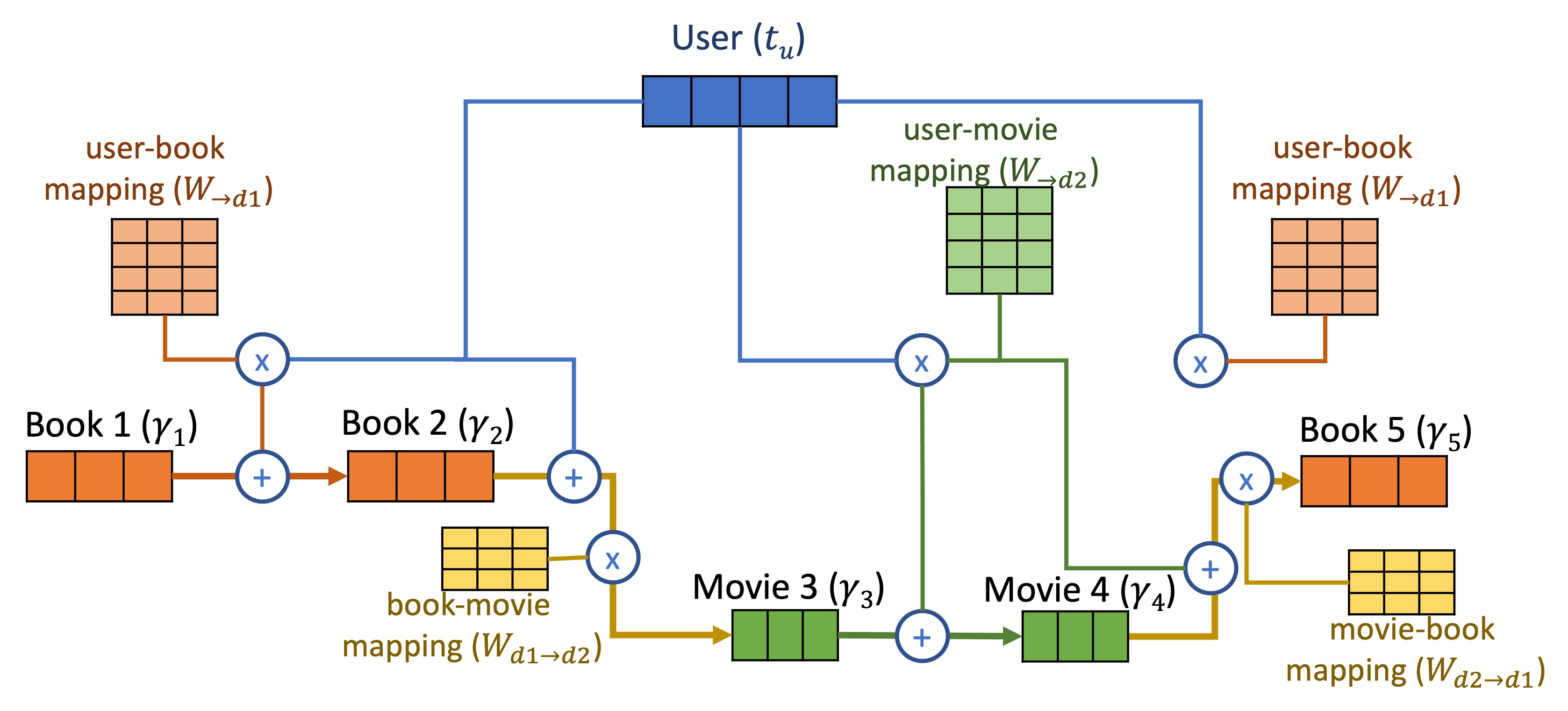
- Deep hybrid cross-domain review generation for suggesting cross-domain recommendations and explaining them to users. The model architecture is shown in figure below: related paper
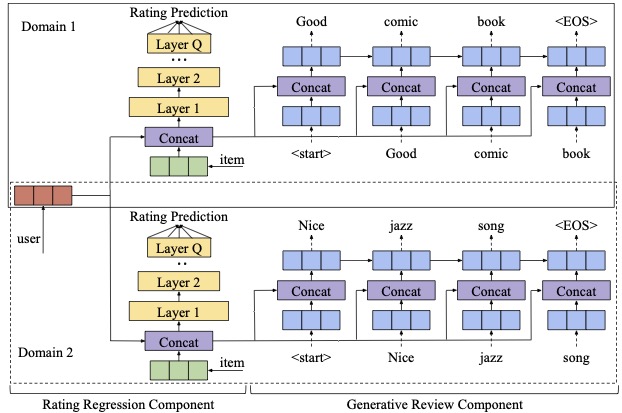
- Canonical correlation models for learning user preferences in one domain (e.g., perfumes), based on their information in another domain (e.g., games). related paper 1, related paper 2
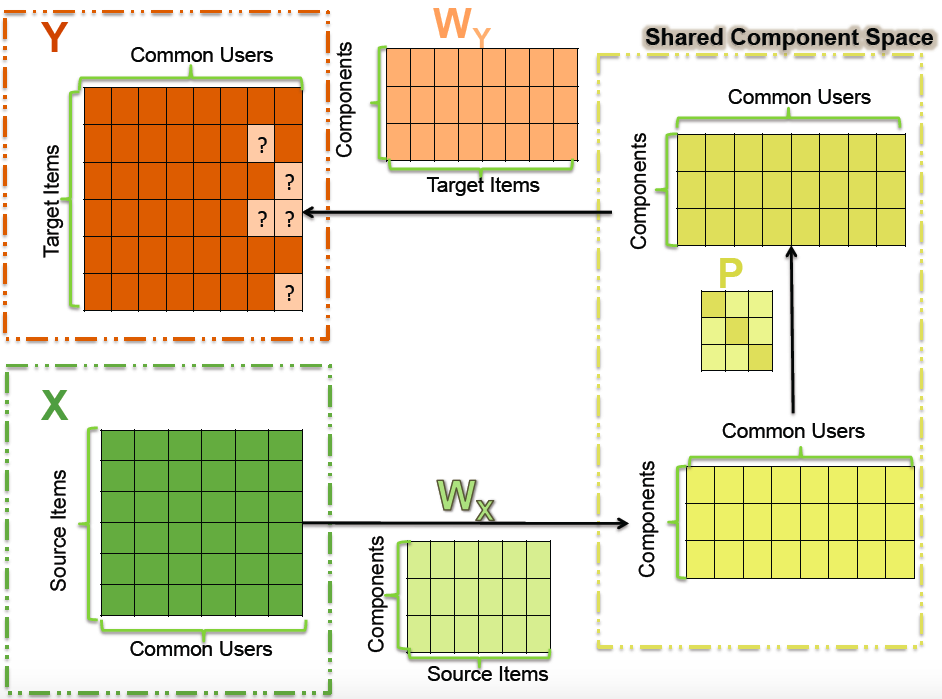
Student Knowledge Modeling
Students learn as they practice and interact with learning material over time. Student knowledge modeling tries to quantify students’ learning gain in course concepts based on their historical performance. This research answers questions such as: How to quantify the gradual knowledge gain in students, given their noisy interactions with learning materials? How to predict the student performance in the next problem given the student’s historical grades? and, How to model students forgetfulness after learning a concept? Here are some of our work in this area:
- Tensor-factorization for student modeling and performance prediction in unstructured domain. The knowledge increase and forgetting is modeled explicitly based on multi-concept item-response theory knowledge increase model related paper, or implicitly with a rank-based knowledge increase penalty related paper. We also de-noise and summarize student attempts on complex problems by ignoring the student attempts that will not add utility to the estimation task related paper. A sample tensor factorization model is shown in figure below:
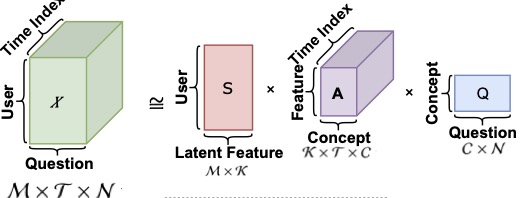
- Student knowledge modeling with explicit and implicit feedback from assessed and non-assessed learning materials. While students learn from both assessed activities (e.g., practicing problems) and non-assessed ones (e.g., reading book chapters), modeling their knowledge from the non-assessed activities is more difficult, because there is no explicit feedback of learning in these kinds of activities. We approach this as a multi-task learning problem by learning a shared representation for student knowledge that is updated via both types of activities. At the same time, each activity type is modeled in a different subspace that can be mapped to the shared student latent representation. We have tensor models paper and deep sequential models paper for addressing this problem. Below is a figure of our deep multi-type knowledge tracing model. This research is supported by National Science Foundation.
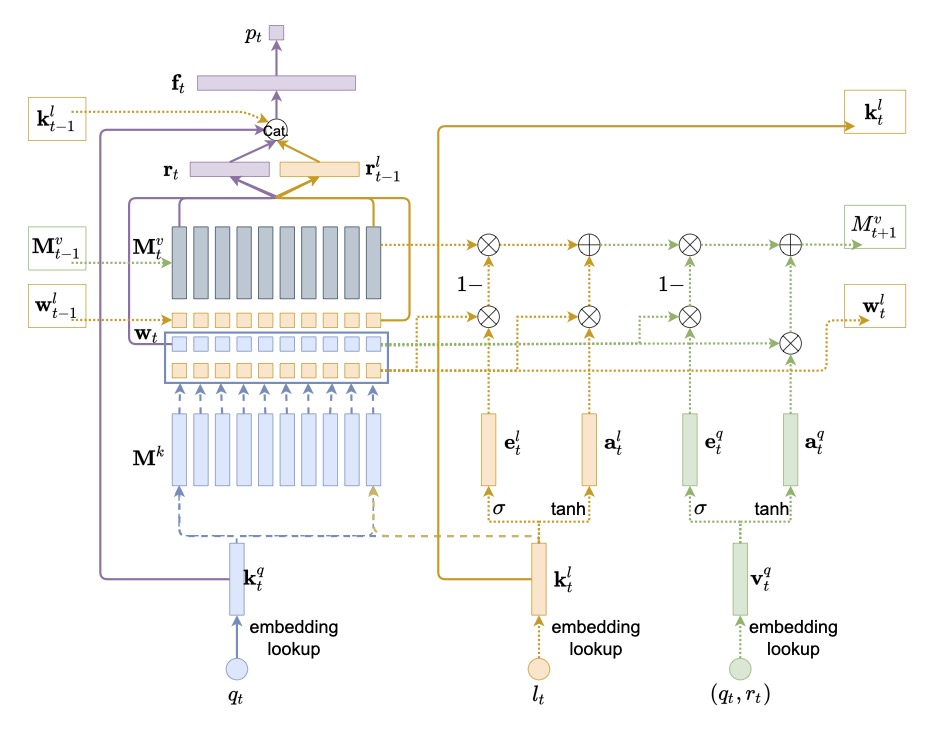
Student Behavior Modeling
In this research we use student log interaction data with online education systems to answer questions like: How much the practice repetition behavior comes from students’ lack of knowledge versus their behavioral traits? Can we detect procrastination in students?, and What time does a student come back to study for a particular goal?
- Hawkes processes for procrastination modeling in students. Procrastination, or delaying planned activities that results in known negative consequences, is a prevalent behavior in online education. In our work, we show that procrastination is associated with cramming behavior in students (related paper), that can be modeled with multi-dimensional Hawkes processes (related paper). We develop personalized Hawkes models that automatically predict the future studying time on assignments in students (related paper) and the effect of deadlines and assignment openings on that (related paper). Below is an illustration of the effect of external stimuli (e.g., deadlines) in student activity timings. This research is supported by National Science Foundation.
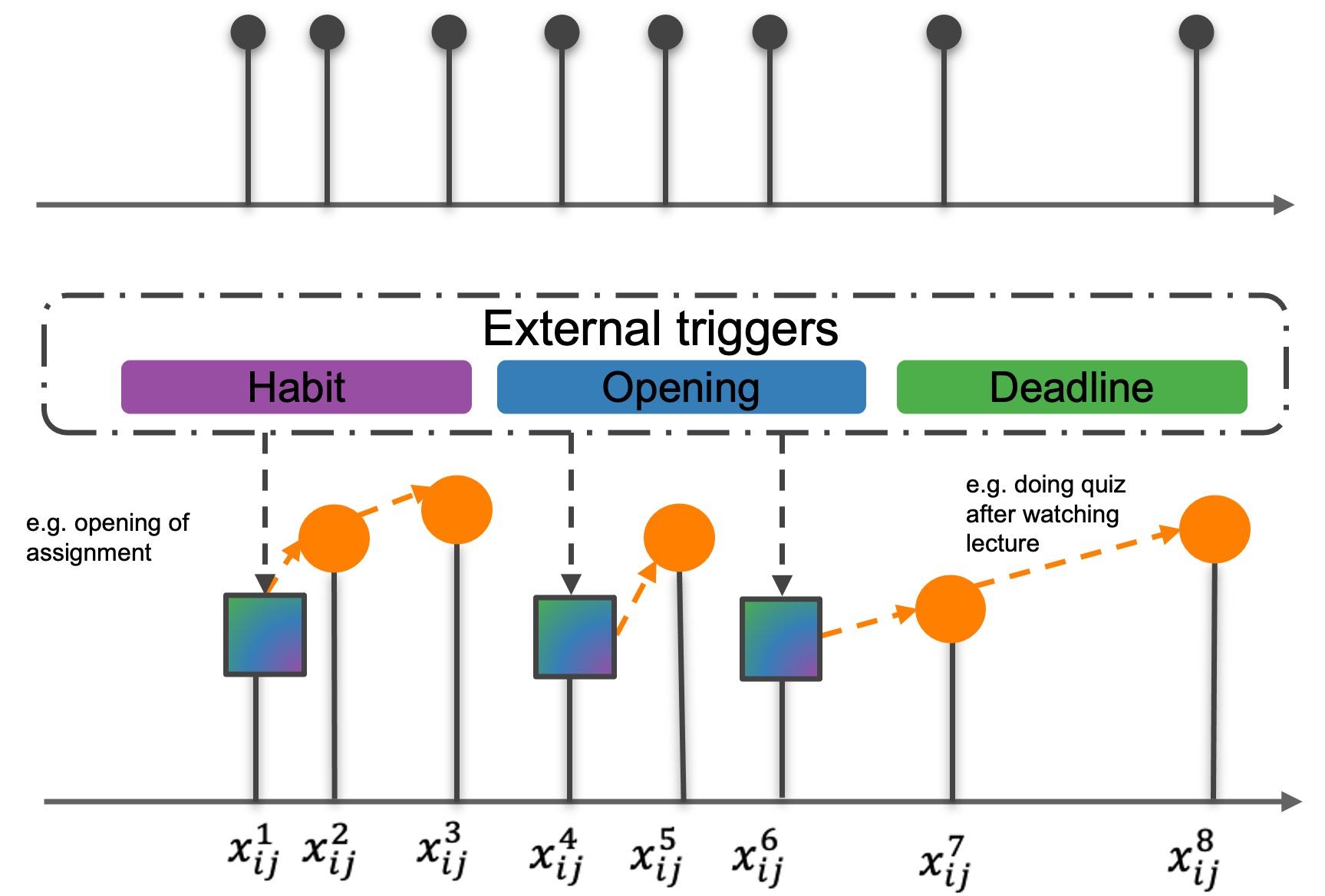
- Discriminative matrix factorization for discovering behavioral traits vs. learning performance. Research shows that some learners show inefficient repetitive behaviors, such as repeating similar questions again and again, while interacting with learning materials. We show that such sequential patterns are compound indicators of students’ behavioral traits and their learning performance and can can cluster students into distinct groups that represent their learning behavior traits, e.g., “readers” and “thinkers” (paper). Because of this compound effect, efficiently separating the learning trait behavioral patterns from the performance behavioral patterns is a challenging task. We formulate this problem as discriminative matrix factorization between high- and low-performance students, to both capture common (learning trait) and distinct (performance) behavioral patterns among them (related paper1, related paper2).